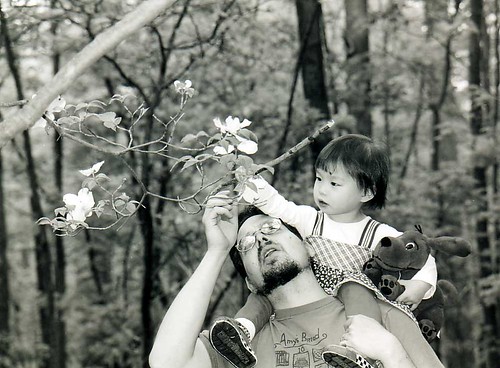|
|
Saturday, March 17th, 2018
Once upon a time, not so very long ago and yet not so recently, everything imitated everything else, and thus, if not for aging and death, man would've never been the wiser about the passage of time.
It seems to me like this blog came into its own when I started reading Snow in 2007. While I was reading My Name is Red (directly afterwards), I did a Google search for the lovely quote above concerning aging and death, and happened on Rafael Carpintero's overview of his translation workshop, "Un autor en busca de tres traductores". Alas the article was in Spanish, a language I did not know, at the time, sufficiently to follow the full article.Well in the intervening ten years I've learned Spanish and have had occasional success as a translator... I'm currently starting to read The New Life in Carpintero's Spanish translation, and was led back to "Un autor en busca de tres traductores" -- long story short, I've gotten in touch with Carpintero and have obtained his permission to translate the article!
posted morning of March 17th, 2018: 1 response
➳ More posts about My Name is Red
|  |
Saturday, March 24th, 2018
I've been reading Pamuk's The New Life, four chapters in now; here are a couple of headings.
- Wonder about class. Osman is an engineering student; does this mark his family (in 1990s Turkey) as wealthy? or at least as whatever the 1990s Turkey equivalent of upper-middle-class is? I'm wondering how he has the wherewithal to disappear for weeks of riding busses around Turkey, presumably eating and staying in hotels... In Chapter 4 he takes some money from his dead seatmate after the bus crashes, but this is after a long period in which money has not been mentioned. (Possibly this is the wrong approach, or not a useful approach, to an allegorical story.)
- The fascination with crashes and death is noteworthy. Wondering if it would be worth going back to Weisel's The Accident (which I read as a young man and have practically no memory of). This is a point of identification for me, my "new life" began after surviving an accident as a 13-year-old.
- The fascination with death is a point of comparison to Dante. Janan is comparable in some ways to Beatrice but her role is much different.
posted morning of March 24th, 2018: Respond
➳ More posts about The New Life
|  |
Sunday, April 8th, 2018
I am now starting chapter 9 in my reread of The New Life-- if memory (aided by blog) serves, this is as far as I ever got the first time I read it. In the past month or two I've read the first eight chapters in Spanish and then in English. Going forward, I'll be reading each chapter in one language and then the other. (Not really trying to compare the two translations here, I'm just looking to (a) improve my Spanish and (b) get a deeper understanding of the text.)
It is tempting to try to imagine myself in the shoes of the narrator -- as I am reading the book, I'm trying to identify the book I'm reading with the unnamed book that the narrator is reading, so that it will take me to a new level of perception (as it does I, the narrator). But I-the-reader am having some trouble figuring out what's the allure of reading such a book, joining such a peculiar society as those-who-have-read-and-understood "the book", it seems more an onerous burden than a blessing. But as I say I'm only less than halfway through currently. Keep waiting for Pamuk to tip his hat! :) Osman and Janan are meeting Dr. Fine/Delicado, author (IIUC) of the book (not super crazy about either translation, I guess the man's name is a Turkish word with that meaning and it's going to be important somehow to understanding the text, to get that pun) -- maybe they're (we're) going to get access to the supernatural reality of the book (the book).
posted morning of April 8th, 2018: 3 responses
➳ More posts about Readings
|  |
|
Two difficult points in reading The New Life -- I am trying to identify with a narrator who is (a) running away to join a cult, or something with distinct parallels to a cult, and is (b) harrassing Janan, who has repeatedly told him to keep his hands off her.
posted afternoon of April 8th, 2018: Respond
➳ More posts about Identification
|  |
Monday, May 11th, 2020
So the ten books that first occur to me as "books that have profoundly influenced my worldview" (whatever those words mean) are, and I posted them in the order that they occurred to me yesterday and today:
- Snow (Orhan Pamuk, Turkey 2002)
- Bicameral Mind (Jaynes, US 1976)
- INFINITE JEST (dfw, US 1996)
- El arte de la resurrección (Hernán Rivera Letelier, Chile 2010)
- Bleak House (Dickens, UK 1853)
- The Autograph Man (Smith, UK 2002)
- Manituana (Wu Ming, Italy 2007)
- Debt (Graeber, US 2011)
- Regeneration Through Violence (Slotkin, US 1973)
- The Unknown University (Bolaño, Chile 2011)
(9 should probably have an asterisk by it, I don't think I ever actually read the whole book.)
I'm happy with this list. I would recommend any of these books highly, were a friend to come to me looking for reading material. Maybe 9. should trade places with #11, "Blindness" by Saramago. I have blogged many of these reads, not all.
posted afternoon of May 11th, 2020: Respond
➳ More posts about Snow
| |
|
Drop me a line! or, sign my Guestbook.
•
Check out Ellen's writing at Patch.com.
| |

